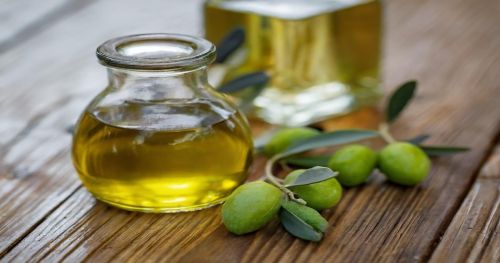Effective and Eco-Friendly Home Cleaning with Baking Soda

In recent years, the shift towards green cleaning has gained significant momentum, with many people seeking safer, eco-friendly alternatives to traditional cleaning products. Baking soda, a natural and non-toxic substance, has emerged as a powerful and versatile cleaning agent. This article explores various ways to use baking soda effectively in your home cleaning routines, helping you maintain a clean and healthy living space while minimizing your environmental footprint.
1. Baking Soda as a Surface Cleaner
Baking soda's mildly abrasive nature makes it an excellent choice for cleaning surfaces. Its granular texture is gentle enough to avoid scratching yet effective in lifting grime and stains. Whether you're tackling stubborn kitchen messes or everyday bathroom buildup, baking soda is your go-to solution.
Kitchen Counters and Sinks: Sprinkle baking soda on a damp sponge or cloth and scrub your kitchen counters and sinks. It effectively removes grease and grime without scratching surfaces. Rinse with water and wipe dry. The kitchen, often the heart of the home, can accumulate layers of grease and grime from cooking. Baking soda's ability to cut through this buildup without leaving scratches makes it invaluable. After applying the baking soda, let it sit for a few minutes to tackle tougher spots, then rinse with warm water and wipe dry to reveal a spotless surface.
Bathroom Surfaces: For bathroom sinks, tubs, and tiles, make a paste of baking soda and water. Apply the paste, scrub with a sponge, and rinse thoroughly. This method helps remove soap scum and stains, leaving surfaces sparkling clean. Bathrooms can be challenging to clean due to soap scum and hard water stains. Baking soda's natural abrasiveness makes it perfect for scrubbing away these tough residues. Additionally, it's safe to use on a variety of surfaces, from ceramic tiles to porcelain sinks, ensuring all areas of your bathroom remain clean and fresh.
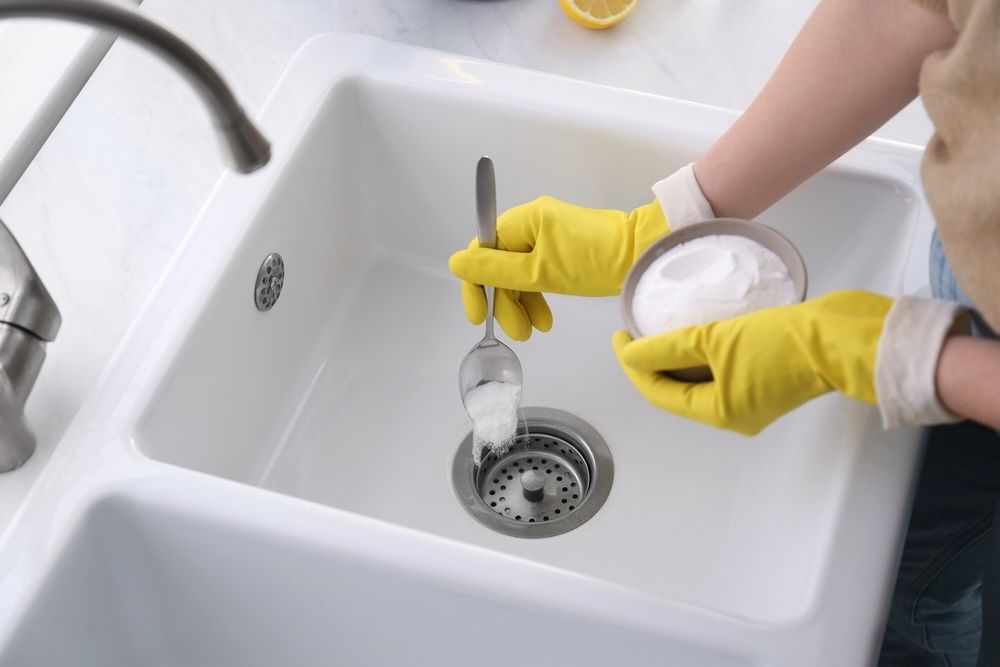
2. Deodorizing with Baking Soda
Baking soda is well-known for its ability to neutralize odors. Its chemical structure allows it to absorb and eliminate unpleasant smells rather than just masking them. This makes it an essential tool in maintaining a fresh and odor-free home environment.
Refrigerators: Place an open box of baking soda in your refrigerator to absorb and neutralize food odors. Replace the box every three months for optimal freshness. The refrigerator is a hotspot for various food odors that can mix and create an unpleasant smell. By placing an open box of baking soda inside, you harness its natural odor-neutralizing properties, keeping your fridge smelling fresh. Remember to replace the box every three months to maintain its effectiveness.
Carpets and Rugs: Sprinkle baking soda generously over carpets and rugs. Let it sit for 15-20 minutes, then vacuum thoroughly. This helps eliminate odors and refreshes the fibers. Carpets and rugs can harbor odors from pets, spills, and everyday use. Sprinkling baking soda and letting it sit allows it to absorb these odors deep within the fibers. Vacuuming afterward not only removes the baking soda but also lifts away the absorbed smells, leaving your carpets fresh and clean.
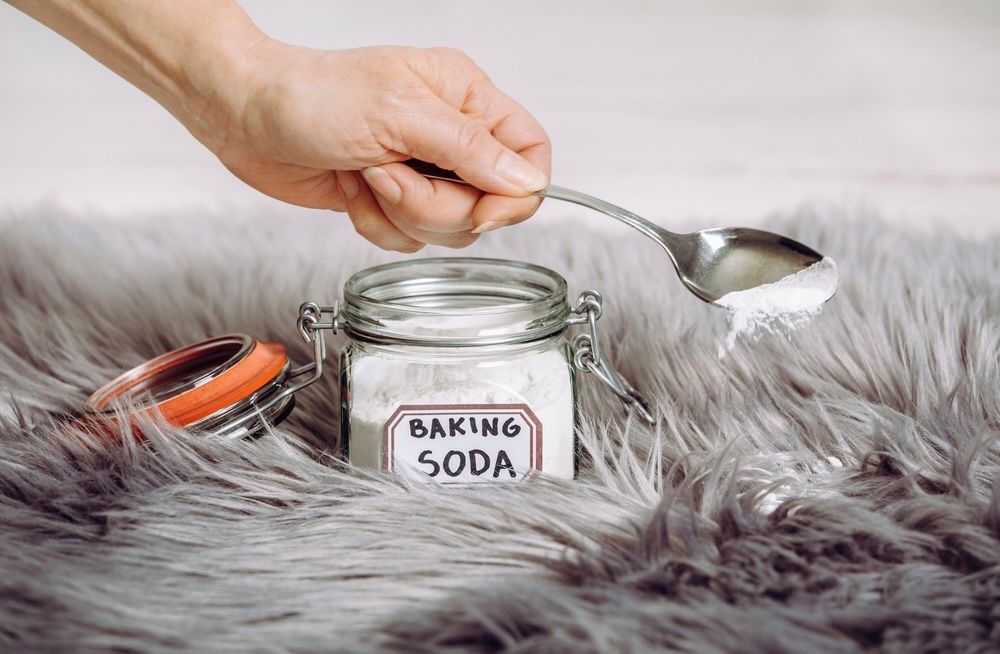
3. Baking Soda for Laundry
Enhance your laundry routine with baking soda to keep clothes fresh and clean. Its alkaline nature helps balance pH levels in water, boosting the effectiveness of detergents and enhancing the cleanliness of your clothes.
Boost Detergent: Add half a cup of baking soda to your regular laundry detergent. It helps balance pH levels, making detergents more effective at cleaning and deodorizing clothes. When added to your laundry routine, baking soda enhances the detergent's power by balancing the water's pH level. This allows the detergent to work more efficiently, resulting in cleaner, fresher-smelling clothes. It's especially useful in areas with hard water, where minerals can reduce detergent effectiveness.
Stain Removal: Create a paste of baking soda and water, and apply it to stains on clothing. Let it sit for a few minutes before washing. This method is particularly effective for removing grease and oil stains. Baking soda's mild abrasiveness and alkaline properties make it effective at breaking down and lifting stains. Whether it's a grease spot from cooking or an oil stain from outdoor activities, applying a baking soda paste directly to the stain helps loosen and remove it before washing, ensuring your clothes come out spotless.
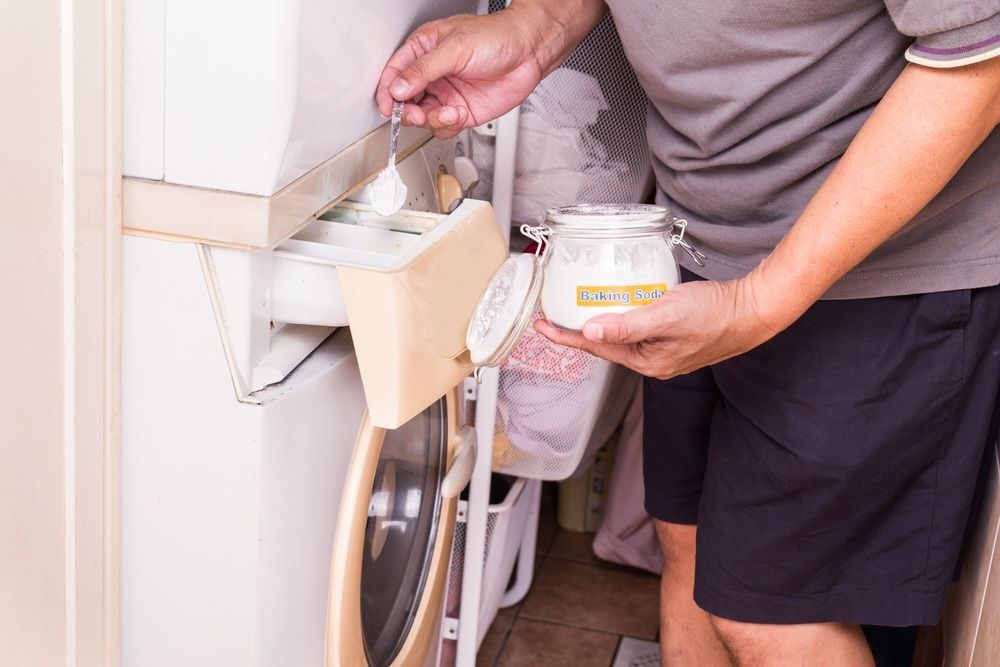
4. Cleaning Pots and Pans
Baking soda can tackle tough, burnt-on food residues in your cookware. Its ability to act as a mild abrasive and its alkaline properties make it effective at breaking down stubborn food particles.
Cookware: Sprinkle baking soda onto the burnt areas of pots and pans. Add a small amount of water to create a paste and let it sit for a few hours or overnight. Scrub with a sponge or brush and rinse clean. This method helps lift stubborn residues without harsh chemicals. Burnt-on food can be a nightmare to clean, especially if it has been baked onto pots and pans. By creating a baking soda paste and allowing it to sit, you soften and loosen the burnt residue. Scrubbing afterward becomes much easier, and the cookware is left clean without the need for harsh chemicals or excessive elbow grease.

5. Unclogging Drains
Baking soda is an excellent natural solution for unclogging drains. Its ability to react with acidic substances like vinegar produces a fizzy reaction that can help break down and dislodge clogs.
Drain Cleaner: Pour half a cup of baking soda down the drain, followed by half a cup of vinegar. Cover the drain and let the mixture fizz and bubble for about 15 minutes. Flush with boiling water to clear the blockage. This method is effective for minor clogs and helps maintain drain cleanliness. Clogged drains can be a common household issue. The combination of baking soda and vinegar creates a chemical reaction that helps break down organic matter clogging the drain. Letting it fizz and bubble for a few minutes loosens the clog, and flushing with boiling water helps wash it away, keeping your drains flowing smoothly.
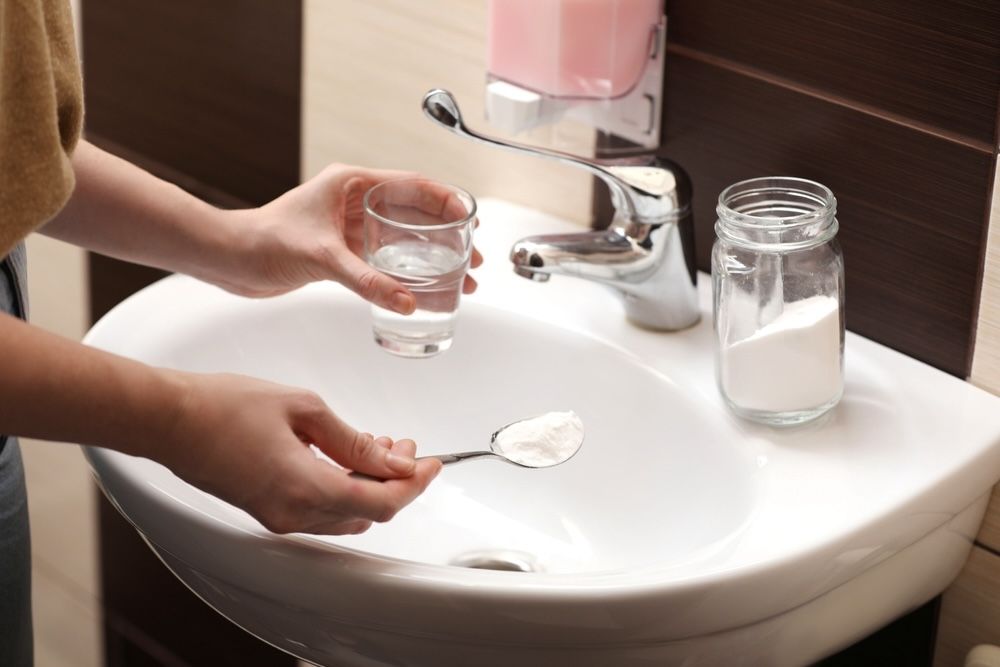
6. Polishing Silverware
Keep your silverware shining with baking soda. Its gentle abrasive action and chemical properties make it ideal for removing tarnish without damaging delicate items.
Silverware Polish: Line a sink or basin with aluminum foil, shiny side up. Fill with hot water and add a tablespoon of baking soda and a tablespoon of salt. Place silverware in the solution and let it soak for a few minutes. Rinse with water and dry with a soft cloth. This method removes tarnish and restores the shine of your silverware. Silverware can easily tarnish over time, losing its luster. The combination of baking soda, salt, and aluminum foil creates a chemical reaction that transfers the tarnish from the silver to the foil. Soaking for a few minutes and then rinsing reveals silverware that looks as good as new, all without the use of harsh chemicals.
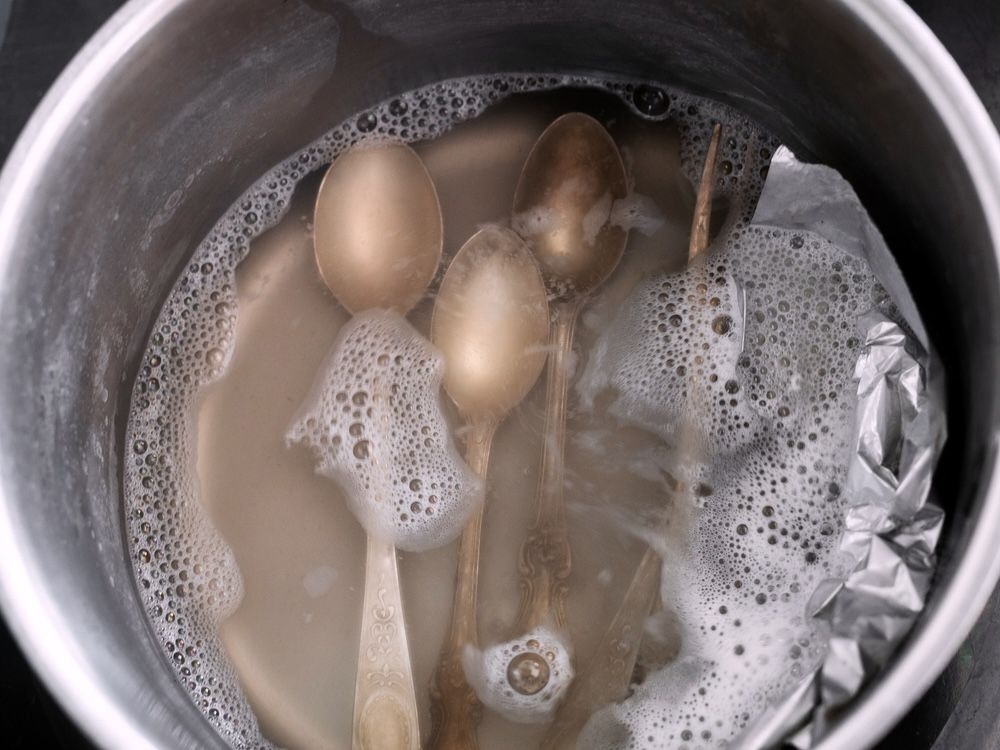
Endnotes
Incorporating baking soda into your home cleaning routine offers numerous benefits. It's a cost-effective, versatile, and environmentally friendly alternative to commercial cleaning products. By using baking soda, you can maintain a clean and healthy home while contributing to a more sustainable planet. Start exploring the wonders of baking soda today and experience the difference it can make in your green cleaning journey.
Baking soda is not just an inexpensive alternative but also a highly effective one. Its versatility extends beyond simple cleaning tasks, proving its worth in various household scenarios. From deodorizing your refrigerator and carpets to boosting your laundry detergent's power, baking soda is a must-have in every green cleaning arsenal. Its natural properties ensure that your home remains not only clean but also free from harmful chemicals that can impact both health and the environment.
For more tips on green cleaning and sustainable living, be sure to browse our other articles in the Green Cleaning section. Our goal is to provide you with practical, eco-friendly solutions that enhance your cleaning routines and contribute to a healthier planet. Embrace the power of baking soda and transform your home into a clean, green sanctuary.
Check more articles on our blog
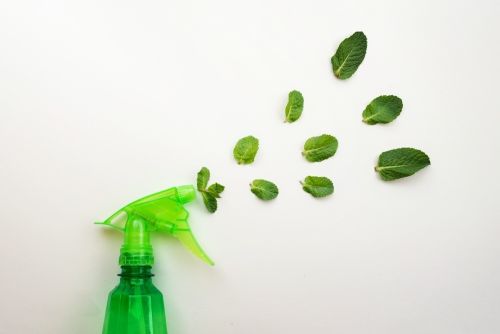
The Impact of Sustainable Cleaning Products on Health and Environment

Useful and easy natural bathroom cleaning tips
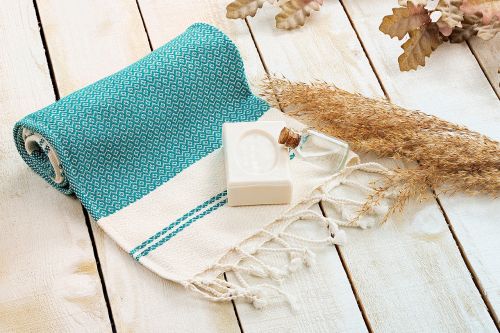
What Are The Paper Towel Alternatives For Leading A Sustainable Life?
